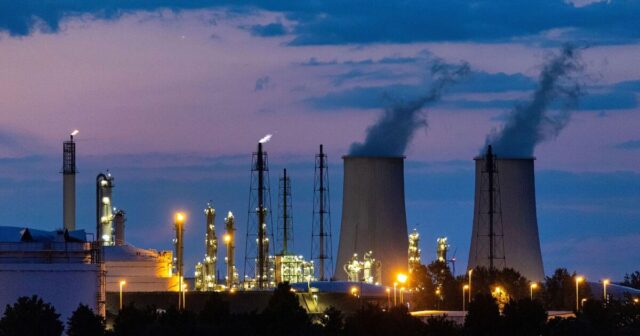Hungary’s Foreign Minister has stated that the Druzhba pipeline will remain Hungary’s primary route for crude oil imports, despite calls from EU to diversify resources away from Russia.
Foreign Minister Peter Szijjarto held talks with Russian Foreign Minister Sergei Lavrov in Minsk on Thursday – and the comments on the pipeline were made on the sidelines following a conference.
The Druzhba oil pipeline is the world’s largest, branching out into numerous other pipelines to deliver its product beyond its line of network.
It carries the substance throughout Almetyevsk in Tatarstan, Russia, flowing through to Ukraine, Belarus, Poland, Hungary, Slovakia, Czech Republic, and Germany.
The Russian owned pipeline has the capacity to carry 1.4 million barrels per day, stretching across 2,485 miles. And the announcement has made it clear that Hungary is appearing to put Russia first, sparking civil wars fear in the European Union.
Supplies to Hungary were temporarily halted due to Kyiv’s addition of Russian company Lukoil to a sanctions list in June, however these have now resumed.
Hungary leans on Russia heavily for energy supply, therefore seeks to maintain close political and business ties with the country – unlike many other countries in the European Union.
Hungary has now been granted an exclusion from any EU embargo placed on Russian oil due its lack of alternative supply. Slovakia and the Czech Republic have also been given the same waiver, yet the EU has urged the countries to diversify their resources.
Despite this, Peter Szijjarto said in a Facebook video shared online that Hungary has received 3.9 million metric tons of crude oil through the Druzhba pipeline – he says “shipments are continuous”.
“In crude oil supplies, the Druzhba pipeline will continue to be the primary route as tests carried out on the Adriatic pipeline made it clear that there are capacity shortcomings,” Szijjarto said.
Hungary’s foreign minister also said how the country additionally received 6.2 billion cubic metres of Russian gas via Turkstream so far this year, and the construction of a nuclear plant by Rosatom, a nuclear power company, was progressing well – a deal awarded to the company in 2014 and has been delayed by years.
The U.S. embassy revealed how ambassadors and defence attaches of NATO members in Budapest met at the U.S embassy on Wednesday to discuss what Hungary describes as a policy of “economic neutrality,” including its ties with Russia and China.










